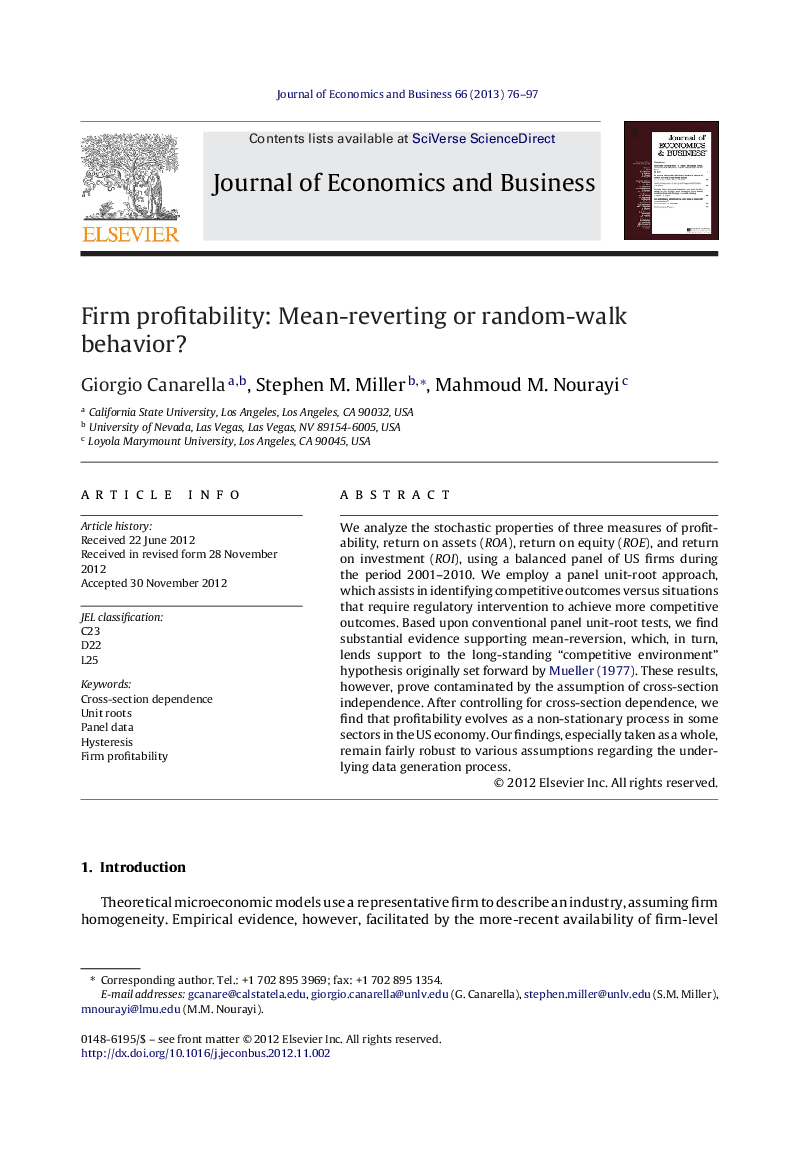| Article ID | Journal | Published Year | Pages | File Type |
|---|---|---|---|---|
| 957970 | Journal of Economics and Business | 2013 | 22 Pages |
We analyze the stochastic properties of three measures of profitability, return on assets (ROA), return on equity (ROE), and return on investment (ROI), using a balanced panel of US firms during the period 2001–2010. We employ a panel unit-root approach, which assists in identifying competitive outcomes versus situations that require regulatory intervention to achieve more competitive outcomes. Based upon conventional panel unit-root tests, we find substantial evidence supporting mean-reversion, which, in turn, lends support to the long-standing “competitive environment” hypothesis originally set forward by Mueller (1977). These results, however, prove contaminated by the assumption of cross-section independence. After controlling for cross-section dependence, we find that profitability evolves as a non-stationary process in some sectors in the US economy. Our findings, especially taken as a whole, remain fairly robust to various assumptions regarding the underlying data generation process.
► Test “competitive environment” hypothesis for three measures of profitability. ► Use large panel of firms with 2001–2010 data broken out by industry. ► Use average industry profit as benchmark rather than economy-wide average profit. ► Find stationary profitability in conventional panel unit-root tests. ► Find nonstationary profitability in panel tests with cross-sectional dependence.
